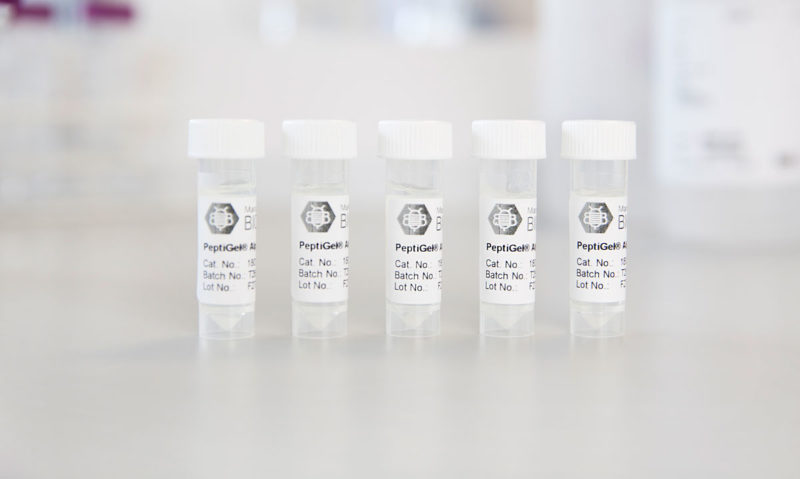Click here to get this post in PDF
Medical research and the development of new products is constantly evolving, with new discoveries being made all the time. It is this research that helps scientists to find new ways of treating various medical conditions and, perhaps more importantly, understanding what makes them happen in the first place. The field of cell culture plays a particularly important role in this research.
What are Peptides?
Peptides are, in fact, smaller varieties of proteins. Different types of peptides can be found contained within a range of different cosmetic and health products, where they have a number of different uses such as their potential anti-inflammatory, anti-ageing and even muscle-building properties.
There has been a significant rise in research into the field of peptides and also products that can be used in the field of cell culture for use with peptides. Much of this research indicates that there are some types of peptides that may have a beneficial role in destroying microbes, reducing inflammation and slowing down the ageing process.
Cell culture
There are some clever new products out there that can aid researchers in their study of peptides and allow them to do more to better understand exactly what you do and how they can be used. Manchester Biogel is one of the companies responsible for such a product, PeptiGels®, that is very beneficial.
Using products that have been specifically manufactured for use in cell culture, more specifically for peptide use, it is possible for cells to migrate, which will allow them to be used for migration-based assays in the lab. The duration of time for any such cells cultured in this way will, of course, depend entirely, however, on the type of cell that is being worked with. The experimental set-up that is being used, however, tests using PeptiGels® specifically have indicated that cells can be cultured for up to 30 days. Obviously, this will depend on several variables.
They can be used for a range of cell densities, ranging from 1 – 40 million cells / mL in a number of different studies. This can be at a range of cell densities depending on the experiment that is being carried out and the hoped-for outcomes. It is recommended that a similar cell seeding density to that used on standard tissue cultures is used for 2D cultures and for 3D cultures a density of between 1 – 4 million cells / mL. What is more, they can be used in a number of ways so cells can be cultured on top of PeptiGels®. Or, depending on your application, they can be encapsulated within the hydrogel.
It is important to consider that different types of cells will require different hydrogels, so it is necessary to do a little preliminary work in the first instance in order to find the most appropriate hydrogel for the needs of the cells that you are working with.
What use can these hydrogels have in cell culture?
It has been shown that in both 2-dimension and 3-dimension cultures, PeptiGels® can support the growth of cells into both organoids and spheroids in co-culture systems. This can then be used for disease and tissue modelling as well as regenerative medicine applications, as a vehicle for both controlled and targeted delivery of therapeutics and also as something that can be incorporated into medical devices. The range of cells that have been studied this way range from skin to cardiac to bone and also encompass a range of human and animal stem cells for differentiation and proliferation.
You may also like: Healthy Lunch Ideas For People Trying To Lose Weight

